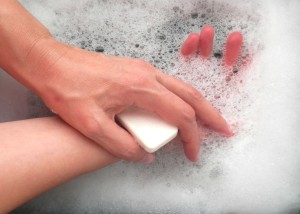
The Hygiene Hypothesis isn’t a new theory it was first put forward in the UK in 1989 by an epidemiologist, Dr Strachan.
The theory looks at the link between the rise in allergies, like hay fever and increased cleanliness. Although the theory was popular a causal link has never been definitively proved.
Move recently there has been renewed interest in the theory and links are being explored between the rise in autoimmune diseases, such as diabetes type 1, MS, Lupus SLE, ulcerative colitis and Crohn’s disease and excessive levels of hygiene. By understanding better how the immune system works we can begin to see how the theory may have some truth behind it.
A recent discovery has shown that a particular group of T-cells, police the immune system, by regulating unwanted immune responses, such as allergies and autoimmune conditions. These T-cells are called Tregs.
A possible theory is that Tregs set the threshold for our body’s autoimmune response so that they react strongly to dangerous infectious diseases to protect us, but ignore harmless day to day things. In order to do this, it is believed that they need exposure to microbial information sources like dirt and germs. Without this information it is possible they set the bar to low and cause an overreaction in the immune system to things such as pollen causing hay fever or even the body’s own organs causing conditions like lupus SLE.
Interestingly, the biggest concentration a staggering 90%, of our immune cells are found in our guts and we are only just beginning to learn how important our gut microbes are.
If you are interested in reading more about this subject you can follow this link to Barbara Fazekas de St Groth (Professor of Immunology at Centenary Institute’s article-How Clean is Too Clean? or alternatively if you like to hear more about it you can listen to Professor Graham Rook (from UCL) discussing it on Radio 4’s You and Yours programme on 29/5/14 (listen to it from 20 minutes in to hear it).
